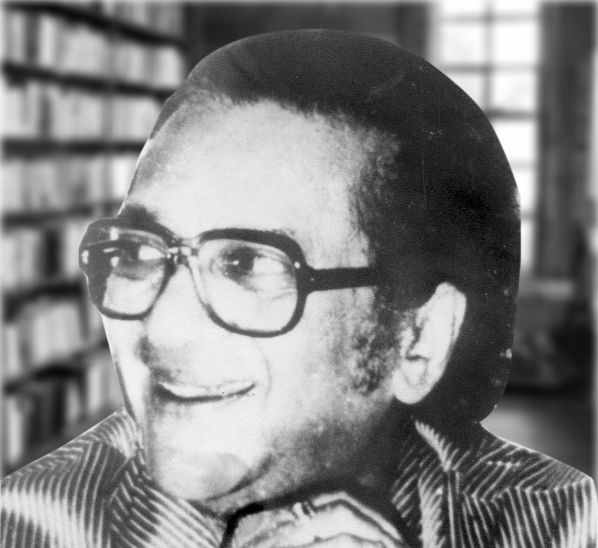- As a boy he followed his older brother, Uday Shankar, to Paris where Uday was forming Europe’s first Indian dance company. Joining in the work of the troupe, he became an acclaimed solo dancer and a competent player of the sitar, sarod, bamboo flute, and the drums
- At the age of eighteen, RAVI SHANKAR abandoned this heady life and returned to India. Shaving his head and accepting the stern rules of discipleship, he placed himself under a renowned master of the sitar, Ustad Allauddin Khan.
- Persevering through lean years, RAVI SHANKAR became a versatile professional musician, performing in recitals the classical ragas learned under his guru, but also creating new music for dance, radio and films.
- The RMAF board of trustees recognizes his enriching India and the world with his sublime mastery of the sitar and with music that colors the mind.
The raga, Indians say, is music that colors the mind. Rising from the deep well of Hindu civilization, the well-rendered melody of a raga can convey ecstasy and sorrow, sunlight and rain, dawn and twilight—any mood in man or woman, or in nature. It resonates with India’s past and, in its infinite and subtle variations, imparts the complex truth of India itself. The raga, says RAVI SHANKAR, “is the heart of our music.†Yet few can master it, and fewer still can reveal its beauty to those outside India. RAVI SHANKAR has mastered the raga. And on the sitar, he plays ragas for the world.
RAVI SHANKAR was born in 1920 to a Bengali Brahmin family. As a boy he followed his older brother, Uday Shankar, to Paris where Uday was forming Europe’s first Indian dance company. Here young RAVI gathered what few shards of formal education he was to possess and, on his own, pored through the classic Indian stories of the Ramayana and Mahabharata and the modern works of Rabindranath Tagore. Joining in the work of the troupe, he became an acclaimed solo dancer and a competent player of the sitar, sarod, bamboo flute, and the drums. He moved in the orbit of Europe’s best young musicians and traveled in Europe, England, and America.
At the age of eighteen, RAVI SHANKAR abandoned this heady life and returned to India. Shaving his head and accepting the stern rules of discipleship, he placed himself under a renowned master of the sitar, Ustad Allauddin Khan. He became his teacher’s favorite pupil, married his daughter, and, after seven and a half years of ceaseless study, struck out for Bombay to establish his career.
Persevering through lean years, RAVI SHANKAR became a versatile professional musician, performing in recitals the classical ragas learned under his guru, but also creating new music for dance, radio and films. He composed hundreds of songs in both the folk and classical traditions for All India Radio, and won acclaim for his ballet-opera based on Jawaharlal Nehru’s Discovery of India and his film scores for Satyajit Ray’s seminal Apu trilogy.
RAVI SHANKAR began performing the sitar internationally in 1956, attracting audiences that grew over the years from a handful of overseas Indians to large cosmopolitan crowds that filled the premier concert halls of New York and London. He was driven, he said, to make Indian music intelligible to non-Indian audiences. Patiently, and with wit, he explained his music before he played it. With Westem musicians he initiated an East-West dialogue, performing alongside virtuosos such as Yehudi Menuhin and Jean-Pierre Rampal. Through the Beatles, sounds of the sitar gained celebrity in the global mass culture of electronic music. In time RAVI SHANKAR became a celebrity himself, sharing his music in gala international concert tours and more than a hundred recorded albums.
Although a brilliant innovator, in concert with the sitar RAVI SHANKAR remains a purist and adheres strictly to the fixed form of the raga. The remarkable spontaneity of his playing, the complex, psychological undertones that make his music feel so modern—these effects are achieved through improvisations that occur wholly within the raga’s traditional framework. Where the raga is concerned, says one admirer, RAVI SHANKAR is “a thorough grammarian.†Yet his stunning interpretations have helped to restore classical Indian music to robust popularity in India and to inspire a new generation of disciples.
In electing RAVI SHANKAR to receive the 1992 Ramon Magsaysay Award for Journalism, Literature and Creative Communication Arts, the Board of Trustees recognizes his enriching India and the world with his sublime mastery of the sitar and with music “that colors the mind.â€
I am overwhelmed by the great honor bestowed upon me by the conferment of the prestigious Ramon Magsaysay Award for 1992 in the field of Journalism, Literature, and Creative Communication Arts. The award is doubly valuable to me because it has been instituted in the name of one of your great national leaders and, being an Asian award, is a reaffirmation of the bonds that link all of us Asians. I therefore, am delighted to accept this award, which I shall always cherish as a symbol of the love and nobility of the Filipino people.
The spirit behind the Ramon Magsaysay awards is, in fact, analogous to the spirit that has been a guiding force behind my work in the field of music. As in the case of the Awards, my work in music too has been motivated by a search for excellence and by an effort to build bridges of friendship the world over. Through music, I have attempted in my own modest way to create a better appreciation of India and to demonstrate that the unity of mankind transcends all differences of race, religion, language, etc. I do sincerely believe that it is only through the realization of this oneness of humanity that we can build a better world in which to live, free from all conflicts and destructive tendencies.
With these few words, I would once again like to thank the Ramon Magsaysay Award Foundation trustees for the great honor bestowed upon me.

